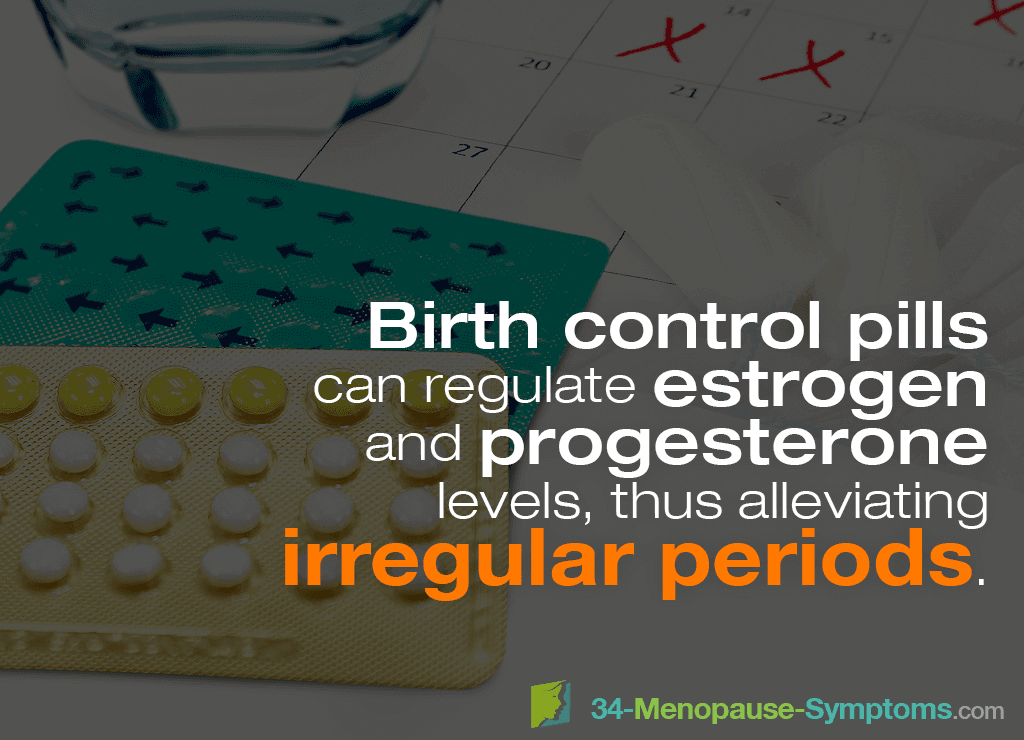During perimenopause, periods often become significantly more irregular, causing women to go in search of a solution to normalize them. If you are considering the use of contraceptives, continue reading to learn about the effects of birth control pills on irregular periods during menopause.
How Will Birth Control Pills Help Me?
There are many different types of irregular periods, such as an abnormally heavy or light flow; infrequent or too frequent menstruation; and periods associated with abnormal discomforts, such as extreme cramping. These can lead to a variety of problems, including iron deficiency.
During the menopausal transition, drastic fluctuations of estrogen and progesterone ensue, and these hormonal changes begin to affect your uterine lining. When there is more estrogen in the system than progesterone, the uterine lining may become thicker or take longer to shed, making periods heavier.
In general, birth control pills can regulate these hormones, thus alleviating the occurrence of irregular periods. Depending on your symptoms, a physician may recommend you take a continuous dosage of pills — not stopping during the week of your period — in order to stop bleeding altogether.
Are There Other Advantages To Taking the Pill?
Taking birth control pills can also help you manage other menopause symptoms, such as hot flashes, mood swings, irritability, night sweats, and more.
Speak with your doctor about the proper dosage of pills needed to regulate your period as well as suppress the symptoms caused by the drastic hormonal fluctuations.
Keep in mind that it is still possible for a perimenopausal woman to get pregnant. So, even if you choose not to take the pill, you may want to continue using another form of contraceptives if you are sexually active.
Is it Dangerous to Take Birth Control Pills?
There has been substantial research on the relationship between breast cancer and birth control pills. Although the findings aren't conclusive, studies have demonstrated a link between pill usage and breast cancer in premenopausal women (women who have not yet reached perimenopause). This risk seems to decrease ten years after women stop taking the pill.
Moreover, most birth control pills increase the likelihood of developing blood clots.
More Information about Irregular Periods
Taking birth control pills for irregular periods is one way to treat the symptom. However, women are first encouraged to put into practice lifestyle changes, which are less invasive and also highly effective. Click on the following link for more information about natural treatments for irregular periods.
Sources
- American Cancer Society. (2016). Birth Control and Cancer: Which Methods Raise, Lower Risk. Retrieved January 25, 2019, from https://www.cancer.org/latest-news/birth-control-cancer-which-methods-raise-lower-risk.html
- Harvard Health Publishing. (2018). Perimenopause: Rocky road to menopause. Retrieved January 25, 2019, from https://www.health.harvard.edu/womens-health/perimenopause-rocky-road-to-menopause
- National Blood Clot Alliance. (n.d.). Is it True that Birth Control Pills Cause Blood Clots? Retrieved January 25, 2019, from https://www.stoptheclot.org/about-clots/webinar_contra/birth_control_clots/




